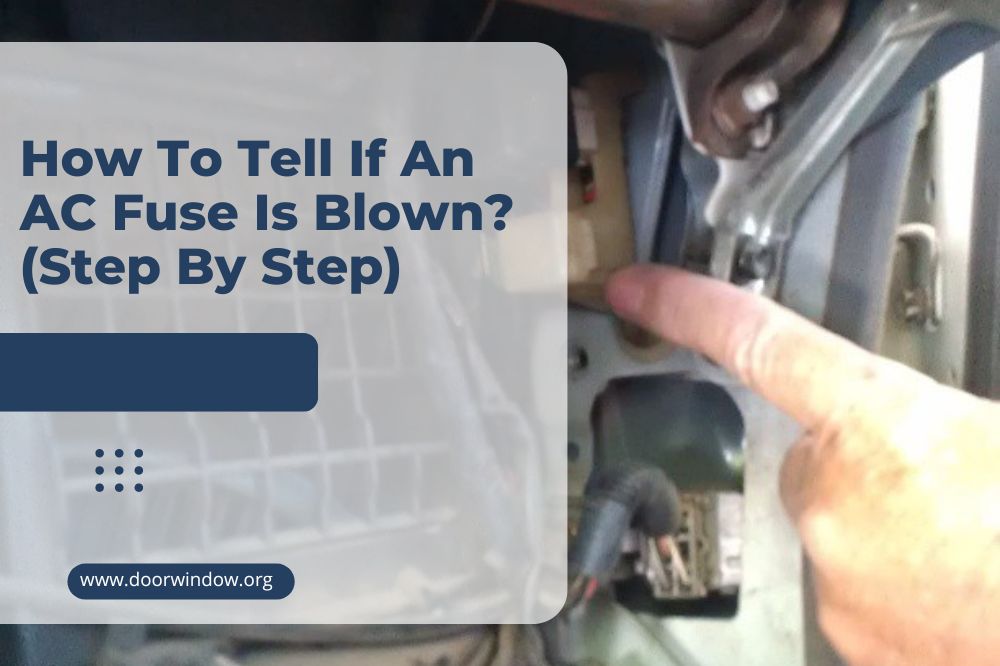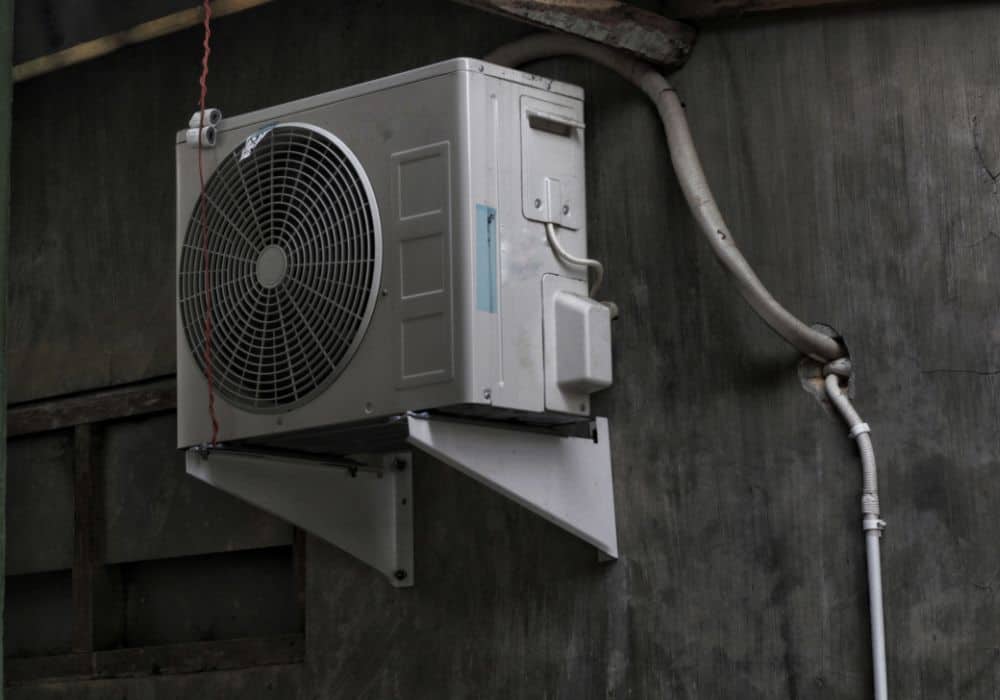How To Tell If An AC Fuse Is Blown? (Step By Step)

The summer heat can be uncomfortable. Luckily, you have air conditioning to keep you cool through even the worst of the heat. But what happens when your air conditioner stops blowing out cold air or, worse, stops working altogether?
One of the biggest culprits of your AC unit malfunctioning is a blown fuse. You may be wondering how to tell if an ac fuse is blown. You are in the right place.
In this article, we discuss how to tell if your ac fuse is blown and what to do about it. Keep reading to find out how!
Tools You’ll Need
- Multimeter or Voltmeter
How To Tell If An AC Fuse Is Blown
During the hottest times of the year, your air conditioner runs a lot more than it usually does. They have a fuse that is made to carry a certain amount of current depending on what your AC unit’s amperage rating is.
When your AC tries to push too much current, this is the prime time for a fuse to blow. This system is in place to protect the condenser from being destroyed, costing you your whole unit and much money.
When your air conditioner stops working, there are a few steps you can take to see if it is a blown ac fuse. You take any further action.
Step 1: Check The Breaker
Before you bother with checking the fuse, always check the circuit breaker first.
Find your electrical systems breaker box and look for the double breaker that controls the AC. It likely has an air conditioner, or AC written on it.
Once you have located the breaker, switch it off and back on. If your AC unit starts working again, then you are good to go. If it doesn’t, it could be your air conditioner’s fuses.
Step 2: Find Your Unit And Listen To It
If your air conditioner is still not working, the next step is to locate your unit. This is a big box with a fan, and It is usually located outside or in a basement.
Now, listen to your unit to see if it is making a sound. If a blown fuse is to blame, your unit will only have a slight hum or no sound at all.
Step 3: Find And Open The Disconnect
Next, you need to find the disconnect box. This is a grey box usually found directly behind your AC unit.
Open the box to gain access to the fuses and wires.
Step 4: Test The Fuses
- Using a multimeter or voltmeter, you will want to check the voltage of the fuses. Before you begin, test your meter to ensure that it is working correctly. Turn the setting to V for voltage, and it should read 0 or infinity.
- Once you have ensured that your meter is working, you can now test the fuses. First, locate the wires. There will be a “line” or incoming wire and a “load” or outgoing wire that are 110 volts each. Be extremely cautious when dealing with electricity and take the proper safety precautions.
- Touch the positive and negative leads from the meter to the lugs (the screws holding the disconnect wires in place). If the voltage reads between 220 and 240, this means the fuse is getting power. If the meter is reading 0, this means the fuse has blown.
Alternatively, you can test the fuses by removing them first if you feel more comfortable. To do this, just make sure you flip the AC breaker first to make sure there isn’t any power coming in. After you make sure the power is shut off, you can remove the fuses and test them.
How To Tell If A Fuse Is Blown Without A Multimeter
If you don’t have a multimeter or voltmeter, there are a few other ways to check if your fuse is blown.
One way to do this is by simply replacing the fuses. While you have the fuse box open, you can either take a picture of the fuses or remove them and take them with you to the store to make sure you get the right ones.
If you get the wrong fuses, they will not work and may mislead you into believing something is wrong with another part of the component.
If your AC works after replacing the old fuses with new fuses, this means your fuse has blown.
Call A Professional
If your fuses had a voltage reading of 220-240V or your air conditioner is still not working after replacing the fuses, it may be time to call an HVAC technician for a repair estimate.
It is also a good idea to call someone if you don’t feel comfortable checking it yourself or checking it seems too confusing.
Professionals are trained and knowledgeable and can offer you valuable information about taking care of your AC unit.
Reasons Your AC Keeps Blowing A Fuse
1. You have a bad compressor
If you find yourself replacing fuses more often than you should, it could be that your compressor has gone bad.
2. You have a faulty capacitor
A bad capacitor is another leading cause of blown fuses in your unit. The capacitor helps regulate the electrical current within your unit. When the capacitor isn’t working correctly, it could cause a fuse to blow or, even worse, damage your whole unit.
3. Your filters are clogged
An easy fix for fuses blowing frequently is your air filters. When you have dirty filters, your unit works harder than it should, causing the fuse to blow if this is the issue, it’s time to replace your filter.
4. Bad wiring
Bad wiring could also be the culprit when your ac fuse blows. Sometimes, high temperatures can cause wiring or other components in the electrical system to come loose. This can cause your whole unit to malfunction or a fuse to blow.
You can check all of the wirings after turning off your AC and switching the breaker off. If anything is loose, you can tighten it up to fix this problem.
5. You have the wrong refrigerant level
If your refrigerant level is too high or too low, this could trigger a blown fuse as well. Make sure you fill in the refrigerant to the exact measuring line. If your refrigerant is lower than it should be and you just refilled it, you could have leaks somewhere.
6. Circuit Issues
It could be an issue with your fuse box if your AC fuse is constantly blowing. You may have more amperage than your component can handle.
7. Faulty Condenser Fans
The condenser fan helps cool the unit if it gets too hot, so if your condenser fan is malfunctioning, it could cause your fuses to blow from your unit getting too hot.
Extended Tips
Make sure you are completely dry before testing any fuses, wiring, or touching any part of the electric components. Water is a deadly conductor of electricity and could cause electrocution if you are not careful.
Take a picture of the inside of the fuse box. This way, you can make sure you put everything back the way it was when you are done. You can also take pictures of anything else within your AC unit that you may check.
Conclusion
Luckily, blown fuses are an easy fix and are not a cause of concern if everything else within your AC unit is in working order.
We hope you found this article helpful in showing you how to tell if an AC fuse is blown. If you have any questions or concerns, let us know in the comment section below. We love to hear from our readers.












